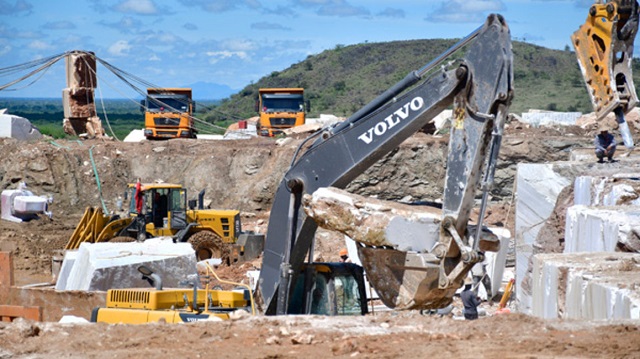
Kampala, Uganda | THE INDEPENDENT | Uganda has registered slow progress in the mineral-based linkages due to the relatively small market for mining inputs and mineral products, preliminary findings of a study shows.
The study also shows that the absence of license requirements for value chain development in the Mining Act of 2003 has also contributed to the current trend.
“Furthermore, the research paper found out that the current Minerals & Mining Policy (2018) in Uganda falls short and needs greater alignment with the Africa Mining Vision and Country Mining Vision (CMV),” the study says in part.
“Therefore, there is need for stakeholders in Uganda to proactive engage on this process and come up with deliberate actions in order to maximize the impacts of mining on intergenerational equity, growth and development.
The study was conducted in 2020 by Third World Network Africa on “Building Mineral-based Linkages: Lessons in three African countries – Uganda, Mozambique and Niger.
The research in the three countries sought to evaluate the progress made by African countries in the building of mining linkages and diversification, and the key lessons since the launch of the Africa Mining Vision (AMV) ten years ago.
Specifically, the research focused on the extent to which policies, laws, and practices for building mineral-based linkages and economic diversification in the three selected countries have been developed and implemented, and the emerging issues and lessons.
Dr. Paul Jordan, the consultant of the study said during the virtual research finding validation workshop organized by Third World Network Africa in collaboration with SEATINI Uganda on Aug.17 that it is important for African countries to focus on investing in minerals such as iron ore, nitrogen and cement among others and less on gold to promote forward and backward linkages for social economic development of the African continent.
He said African countries too need to emphasis on joint ventures with foreign companies investing the country’s mineral sector as well as emphasis on building skills of the local population.
He said there’s also need to involve women in the mineral sector developments as well as involve regional cross border investments.
Jane Nalunga, the executive director at the SEATINI Uganda said Uganda need to have a proper policy space to facilitate investment in these precious minerals.
She said countries in the region currently have different policies in relation to investment in these minerals and that at times tries to compete instead of collaborate in investments.
She added that Uganda need to review its investment code in addition to President Yoweri Museveni ascending into Local Content Bill to ensure that local firms and population benefits in these mineral investment ventures.
Africa Mining Vision
African Heads of State adopted the Africa Mining Vision at the 2009 Africa Union Summit and is Africa’s vision and action plan for overcoming the apparent paradox between Africa’s large and varied mineral endowments and its widespread underdevelopment and grinding poverty.
The AMV seeks to be holistic by advocating development beyond mining into maximising all of the seminal mining linkages to facilitate industrialisation and the development of other sectors particularly manufacturing, construction, power, agriculture and others, not only through downstream value addition to produce key feedstocks, but also through developing the knowledge linkages (skilling and technology development).
The AMV calls for “Transparent, equitable and optimal exploitation of mineral resources to underpin broad-based sustainable growth and socio-economic development” through the realisation of all of the mineral linkages.
Since gaining independence, most African countries have made little progress in integrating their mineral sectors into their local economies, with the notable exceptions of South Africa, Zimbabwe and Egypt. This was due in part to weak mineral prices from the mid-1970s to the early 2000s and inappropriate policies.
The rise of demand from Asia (particularly China and India) provides new opportunities for Africa to integrate its mineral sector into the local and regional economies, through developing the crucial mineral linkages.
However, this will not happen through “market forces” alone and requires national & regional strategies comprising appropriate policies and interventions.
 The Independent Uganda: You get the Truth we Pay the Price
The Independent Uganda: You get the Truth we Pay the Price



